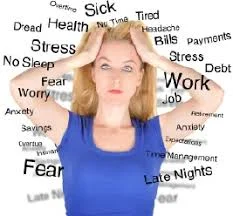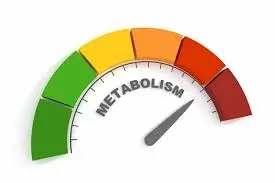Can anxiety cause weight loss ?
Introduction:
Stress-induced high cortisol levels can disrupt the digestive and neurological systems, resulting in weight loss. You should consult a doctor if you inadvertently lose more than 5% of your body weight.
For many people, stress has a direct influence on their weight. Whether it promotes weight loss or increases depends on the individual and the environment.
Stress might result in missed meals and bad eating choices in certain circumstances. Others may have full loss of appetite as a result of stress. Often, this alteration is just transient. Your weight may return to normal when the stressor has subsided.
The link between anxiety and weight loss:
The “it’s complicated” relationship status was created to address the connection between worry and weight loss.
Anxiety can induce weight loss or growth, depending on how your body responds to it. And the relationship works both ways. Weight loss can cause worry, even if you’re doing something good for your health.
Continue reading to learn more about the relationship between anxiety and weight loss, as well as methods for dealing with anxiety while losing weight.
Signs that your weight loss is related to stress:
Stress can lead to more than simply unexpected weight loss. Other signs of stress include:
- headaches
- indigestion
- aches and pains
- tense muscles
- mood changes
- fatigue
- difficulty falling or staying asleep
- difficulty with short-term memory
- increased heart rate
- decreased sex drive
Is it feasible to lose weight because of anxiety?
In short, yes. Anxiety may have a substantial influence on a person’s weight and metabolism for a variety of reasons, resulting in obvious and often unexpected weight fluctuations. Here are several reasons why worry might aid in weight reduction.
Appetite loss
Due to the ongoing anxiety and concern that can make eating appear unpleasant, many people experience a marked loss of appetite when they are nervous. It might be difficult for the person to consume regular meals under extreme situations since the mere concept of eating can cause bodily discomfort and raise their stress level. If not treated right once, this extended reduction in food intake and, as a result, calorie consumption can cause unintended weight loss, weaken the body, and perhaps have an impact on general health.
A higher rate of metabolism
An individual’s metabolism may considerably increase as a result of the ongoing production of stress hormones associated with worry. The body burns more calories at rest as a result of this boost in metabolism, which increases the energy deficit and may cause weight reduction to happen quickly. Further contributing to weight loss is the breakdown of muscle tissue brought on by the continuous release of cortisol.
Maintaining this elevated metabolic state can eventually wear a person out, making it more difficult for them to achieve their dietary demands and keep a healthy weight.
Digestive Problems
Anxiety and the digestive system are inextricably linked because the brain and stomach communicate via the gut-brain axis, which means that stress signals from the brain can impair digestion and, as a result, increase anxiety.
Nausea, stomach cramps, and diarrhea are common symptoms of anxiety-related digestive difficulties, and they can disrupt regular meals and vitamin absorption. Such interruptions might make it difficult to maintain a healthy weight, resulting in unanticipated weight loss.
Anxiety medicines
While taking anti-anxiety medicine to treat symptoms, a person may lose weight. Medications such as selective serotonin reuptake inhibitors (SSRIs) may suppress appetite, particularly in the early phases of treatment, since they raise serotonin levels, which are involved in mood regulation and appetite loss. People with a diminished urge to eat may end up ingesting fewer calories and eventually losing weight.
Weight loss anxiety symptoms:
- You lose weight suddenly and for no obvious cause.
- Your weight is reduced by many pounds in a short period.
- For no apparent reason, you’ve shed several pounds.
- Your anxiousness has caused you to lose a significant amount of weight.
- You’ve dropped ten pounds or more because of your anxiety.
Weight loss might have happened quickly over a few days, weeks, or months, or it could have happened during the time you were suffering from anxiety illness.
Anxiety issues and eating disorders:
In rare circumstances, anxiety can lead to purposeful weight reduction through eating disorders such as bulimia nervosa or restricted eating behaviors. For people suffering from an eating disorder, the fear of gaining weight can be overpowering and a major cause of anxiety, leading to obsessive thoughts about food or body image, resulting in severe weight loss.
On the other hand, anxiety-driven emotional eating frequently entails turning to food for consolation, particularly unhealthy food. These behaviors may bring immediate comfort, but they can lead to increased anxiety and binge eating cycles, which contribute to long-term weight management issues.
How can the anxiety associated with weight reduction be eliminated?
By addressing your anxiety problems, lowering your body’s stress levels, and allowing your body enough time to react positively, you may eradicate anxiety-related weight loss, just like you would with any other anxiety symptom. You should stop losing weight as a result of worry when your body heals from overstimulation.
Anxiety-related weight loss can be resolved by consistently using your recovery techniques, which may include addressing the root causes of your anxiety to reduce the stress in your body.
Your weight will probably stabilize and ultimately return to normal when the hyperstimulation is removed and your stomach and digestive system resume their regular functions.
Temporary solutions:
You may take immediate action to prevent and even reverse anxiety-induced weight loss in addition to the long-term strategy of removing hyperstimulation:
- As much as you can, lessen the stress on your body.
- Weight loss and fuel consumption can both be decreased by lowering your body’s stress levels.
- Increase your rest, relaxation, and sleep to slow down your body’s metabolism.
- Fuel consumption may be slowed by slowing down your body’s metabolism.
- Eat more food, particularly ones that are strong in carbs and protein.
- The increasing fuel consumption may be countered by this increase.
Consume a dietary supplement.
An increased need for fuel can also be countered with a dietary supplement.
Consult a practitioner of nutrition science.
You can get advice from a Nutrition Science Practitioner on how to boost your body’s energy reserves and mitigate the negative impacts of stomach and digestive issues brought on by stress and worry.
However, benefits will come eventually if you obtain regular, quality sleep, get rid of unneeded stress reactions, practice your recovery techniques consistently, treat your underlying causes, accept your feelings and symptoms passively, control your concerns, and stay patient. The body must heal itself when you put in the necessary effort.
You might wish to get in touch with one of our suggested anxiety disorder therapists if you are struggling to control your concerns. The best method to get over what seems like uncontrollable concern and anxiety is to work with a skilled anxiety disorder therapist.
How to deal with weight loss brought on by anxiety:
If someone’s abrupt weight loss is suspected to be caused by worry, there are several techniques to assist manage the problem and return to a healthy weight.
Seek expert assistance
By exploring the mental and physical causes that may be affecting a person’s weight loss, working with a therapist or counselor can offer invaluable support in resolving the anxiety that is contributing to that weight loss. In particular, cognitive-behavioral therapy (CBT) works well for controlling anxious thoughts and recognizing and combating harmful thinking patterns in favor of more balanced, healthful viewpoints. People can reduce emotional eating and stress connected to food by addressing the underlying anxiety and adopting a more positive and mindful eating style.
Give nutrition ta op priority.
The body will acquire the vital vitamins and minerals it requires if it focuses on eating a balanced diet full of nutrient-dense meals including whole foods, fruits and vegetables, lean meats, and healthy fats. Eating small, frequent meals or snacks might assist someone who is experiencing anxiety-related appetite loss ingest enough calories to maintain a healthy weight, promote general health, and improve brain function. Maintaining energy levels and possibly lowering anxiety symptoms require consistency, so it’s crucial to establish lifestyle modifications and a regular eating schedule despite appetite swings.
Take medicine into account.
Anti-anxiety drugs may be required in certain situations to manage extreme symptoms and lessen the physical manifestations of worry, such as heart palpitations and stomach problems. People may be able to regain a normal appetite and stop future weight loss with less physical and mental suffering. These drugs can also help patients participate in treatment, develop better-coping mechanisms, and enhance their general quality of life by reducing the severity of anxiety.
Engage in stress-relieving exercises.
By reducing stress, regulating hunger, and promoting better weight control, regular exercise, mindfulness, and relaxation practices can all help to enhance mental health. Maintaining a balanced diet can be made simpler with regular physical exercise, such as yoga, walking, or strength training, which can help control hormones that affect appetite and satiety.
Similar to this, mindfulness exercises like deep breathing or meditation help lessen the influence of negative thoughts and emotional triggers, which frequently result in overeating or unhealthy eating patterns. Eventually, incorporating these techniques into everyday life can help foster equilibrium and serenity, which will make it simpler to control one’s mental and physical well-being.
How to help you get your meals back on track:
There are actions you may take to progressively re-establish a routine if stress has affected your eating habits. Eating regularly can help you feel happier, have more energy, and strengthen your immune system.
Use your phone to remind you to eat at certain times.
You can be too stressed to remember to eat, or the stress in your body might change how hungry you feel. Set a computer or smartphone alarm to remind you to eat so you don’t skip meals.
Consume a little meal.
Maintaining a consistent eating pattern aids in controlling your blood sugar levels. At mealtimes, even a few tiny nibbles might reduce tension and potentially prevent more mood swings.
Choose foods that are high in fiber or protein if you can. Steer clear of extraneous sugar and caffeine, since these substances might cause an energy surge followed by a collapse.
Select meals that will lift your spirits and help you cope with stress.
The way your body feels may be significantly affected by substituting nutritious foods for sweets and other indulgences. Eating only entire foods, such as fruits and vegetables, is a good rule of thumb.
Here are a few of our utilitarian favorites:
Antioxidants in oranges and carrots strengthen the immune system.
Vitamin B, which is found in leafy vegetables, aids with nerve regulation.
Complex carbs included in whole grains increase serotonin levels. Raising your serotonin levels might help you relax.
Omega-3 fatty acids, which are found in salmon and tuna, have the potential to alleviate stress.
Omega-3 fatty acids, which reduce stress, are also found in nuts and seeds.
Steer clear of meals that might cause blood sugar spikes and worsen your symptoms.
Sugar-rich meals might give you a temporary energy boost, but you will eventually experience a comedown. You can feel worse than before the sugar left your circulation. Additionally, foods heavy in fat and salt may exacerbate stress.
Until your stress level drops, try to restrict or stay away from the following:
- Baked goods and fried food
- Candy
- chips
- sugar-filled beverages
- processed foods
Instead of ordering takeaway, choose a prepared meal from your neighborhood market.
If you don’t feel like cooking, you might want to check out the fresh food department of a local store.
The salad bar is a great option for vegetable-filled lunches and dinners, but the hot bar can also be a healthier alternative to takeaway if you want comfort food.
Additionally, some grocery stores offer hot bars in the morning for egg sandwiches or breakfast burritos instead of sugar-laden options.
If you’re exercising, develop the habit of eating a snack afterward. Eating post-workout is the only method to replenish the energy you use while working up a sweat. Skipping a snack or small meal may appear innocuous, but it might cause unpleasant side effects such as lightheadedness and low blood sugar.
Burning more calories than you consume might cause surprising weight loss.
Choose something heavy in protein or healthful carbohydrates, such as:
- avocados
- bananas
- nut butter trail mix
- rice cakes
- Greek yogurt
Tips for Managing Weight Loss Anxiety:
If you’re worried about losing weight for any of the reasons listed above, you’re not alone. It’s common to feel anxious about major changes, especially ones as personal as weight reduction.
However, there are techniques to manage anxiety while losing weight. Here are some helpful tips:
Speak with loved ones. Open up about your concerns and seek help making lifestyle adjustments. Friends and relatives may also participate by accompanying you on a morning stroll or cooking healthful meals.
Speak with a healthcare practitioner. Please share any concerns you have regarding weight reduction or the meds you are considering. You might also talk to a certified therapist about your anxiety or attempt cognitive behavioral therapy to treat worried eating habits.
Practice anxiety-management skills. Deep breathing, meditation, and gratitude writing are all techniques that can assist in reducing stress and promote calm.
Set reasonable goals. That applies to both weight loss and the adjustments you will make to reduce weight. You don’t have to modify every area of your life right away, and you don’t have to give up activities you like, such as socializing with friends, to attain your weight reduction objectives. Set reasonable objectives, such as walking 2,000 additional steps each day or including protein in every meal.
Rather than obsessing over the number on the scale or the amount of time it takes to lose weight, focus on all the positive things you’re doing for your body: eating wholesome meals and snacks, drinking more water, exercising more, and getting enough sleep can all help you lose weight and feel fantastic while doing it.
Summary
If you’ve lost more than 5% of your total body weight in a short period, you should consult a healthcare provider. Otherwise, you might be able to manage mild stress-related weight loss at home.
Your doctor can help you figure out why stress is affecting your weight so much and provide a customized treatment strategy. This might entail discussing your daily pressures with a therapist and creating a diet plan with a nutritionist.
FAQs
Can weight loss create anxiety?
Even if you have a strong support system, your desire to lose weight may cause anxiety. A 2023 study discovered that having a higher targeted weight loss goal was connected with increased anxiety.
Why do I become worried when dieting?
One of the biggest reasons for diet anxiety is focusing too much on the future instead of the present. Instead, focus on what you can accomplish today and take these adjustments one day at a time. This might make adopting a new diet more manageable and less stressful.
What are the psychological implications of weight loss?
Weight loss also is related to considerable gains in psychosocial status. Losing weight improves the majority of psychosocial traits, such as anxiety and depression symptoms, quality of life connected to health and weight, self-esteem, body image, and sexual functioning.
Does anxiety worsen during a fast?
Some of them demonstrate how short-term fasting can lessen the intensity of good feelings while increasing negative ones, including the prevalence of despair, anxiety, tension, rage, irritability, and exhaustion. Lower job efficiency coexists with these negative emotional changes.
What foods are beneficial for anxiety?
Foods naturally high in magnesium may, therefore, aid a person to feel calmer. Spinach and Swiss chard are two examples of leafy greens. Other options include legumes, nuts, seeds, and whole grains. Zinc-rich foods like oysters, cashews, liver, beef, and egg yolks have been related to reduced anxiety.
Does dieting cause stress?
Restricting calories raised overall cortisol production, whereas monitoring calories increased stress.
Does worry lead to weight gain?
Anxiety can induce greater exhaustion and a general lack of energy, causing a person to become less active. Without frequent exercise, the body is unable to burn calories, and when calories are not consumed daily, weight gain occurs.
References
- Silver, N. (2024, September 5). Stress and weight loss: what’s the connection? Healthline. https://www.healthline.com/health/stress/stress-weight-loss#what-you-can-do
- Anxiety Centre. (2021, December 7). Weight loss; Sudden weight loss anxiety symptom – AnxietyCentre.com. AnxietyCentre.com. https://www.anxietycentre.com/anxiety-disorders/symptoms/weight-loss/
- How anxiety may cause weight loss. (2022, September 3). https://www.calmclinic.com/anxiety/weight-loss
- Can anxiety cause weight loss? | Charlie Health | Charlie Health. (2024, December 2). Charlie Health. https://www.charliehealth.com/areas-of-care/anxiety/can-anxiety-cause-weight-loss




